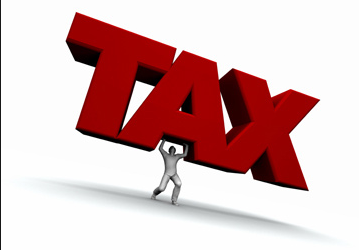Like meteorologists tracking distant storms heading their way, some folks in Sacramento are watching for signs that tax increases are building momentum for the 2016 ballot when the Proposition 30 temporary taxes begin to fade away.
Now that this year’s state budget is done with increased spending in place, and the promise for more spending if revenue exceeds expectations, how are the programs going to be funded if there is a dip in the economic cycle or the temporary taxes disappear? Tax increases are one way and members of the majority party and the interests that support them are not shy about talking about possible tax increases. There are also those interests considering the tax route to discourage the use of certain goods or products.
Looking into a crystal ball that admittedly has a couple of cracks in it, here’s a list of possible tax increases that could appear on the 2016 ballot. Or could we see more than one?
5. SODA TAX. The push is on to raise taxes on sweetened beverages. Proponents say it is a health issue to end the scourge of diabetes and obesity. The warning label on soda bill the legislature considered this year is the first step in softening the ground for such a move.
4. CIGARETTE TAX. An old reliable. It has appeared on the California ballot a number of times since the late 1990s, winning some and losing some. Most recently, Proposition 29 in 2012 came within six-tenths of one percent of passing. Proponents would like another crack at it.
3. OIL SEVERANCE TAX. You’ve heard the charge: California is the only state that doesn’t levy such a tax, regardless of other taxes burdening the oil producing industry. Now supporters have deep pockets in their corner with billionaire Tom Steyer, who has stated he wants to discourage the use of carbon fuels and see an oil tax. While another deep pocket supporter, Stephen Bing, was defeated in his ballot effort to gain an oil severance tax in 2006 that won’t discourage Steyer.
2. SPLIT ROLL. The goal of those who desired increased government revenue for the 36 years Proposition 13 has been in place, a split roll would tax business property on a different basis than residential property. Unlike the aforementioned taxes that proponents probably would designate the use of some or all of the revenue, the property taxes would go to local government functions, especially schools, relieving some state obligations.
1. MAKE PERMANENT PROP 30 TAXES. Or at least continue the income tax portion of Prop 30, which brings in the bulk of the revenue. It is the easiest route for tax raiser to go – maintain the status quo and tax the rich, an effective campaign slogan when Prop 30 passed in 2012.


